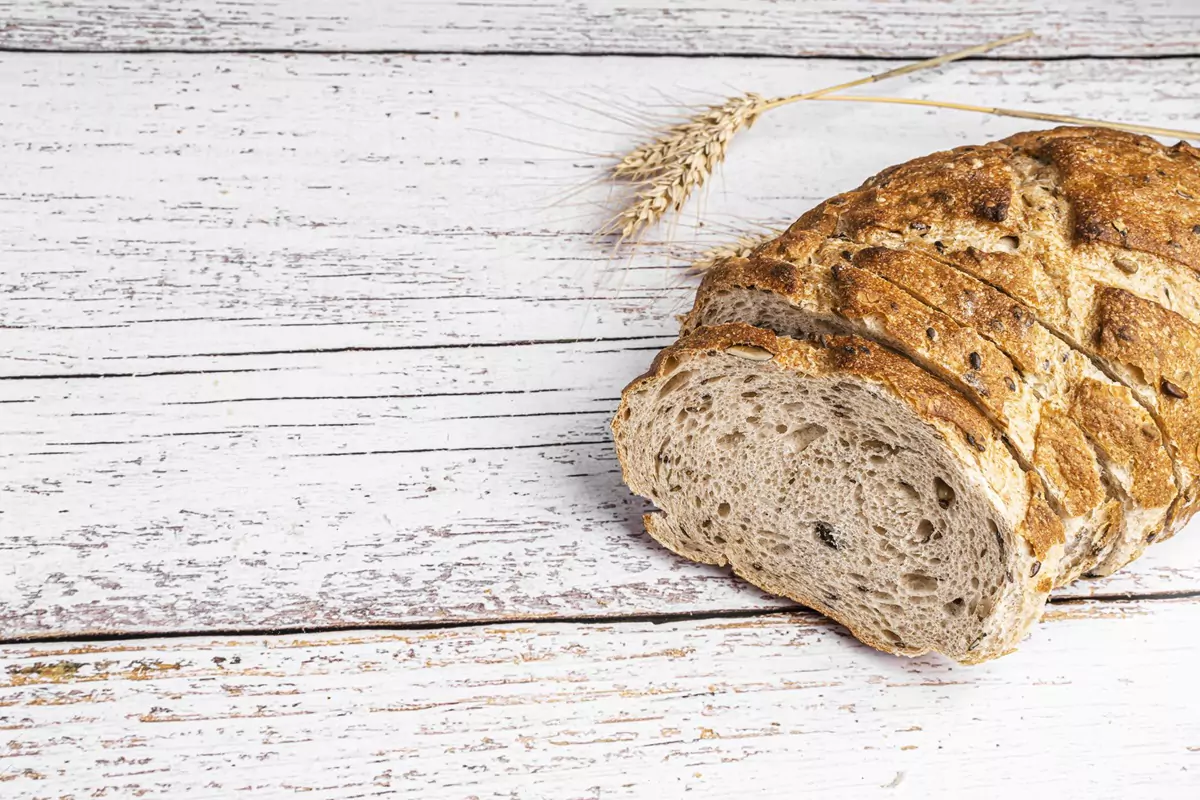
UP TO 40% OFF SITEWIDE






Should Diabetics Eat Bread?


Managing diabetes may require making difficult decisions regarding your food choices. A common inquiry among individuals with diabetes is if they can eat bread. The answer is not straightforward. For diabetic patients, bread can be included in a healthy and balanced diet.
However, it is crucial to select the appropriate types of bread and restrict the quantity you eat. In this article, we will discuss why bread can be problematic for individuals with diabetes which types of bread are suitable for them and how to make healthy bread choices that can be incorporated into a diabetes-friendly diet.
What’s the Connection Between Bread and Blood Sugar Levels?
Bread is a commonly consumed food in various cultures globally due to its widespread availability and nutritional value. Bread is a good source of carbs and is typically processed for easy digestion. For individuals with diabetes, bread may cause worry. Bread is rich in carbohydrates which can cause a sudden increase in blood sugar levels when consumed.
It is crucial for people with diabetes to be aware of the amount of carbohydrates they consume in order to keep their blood sugar levels in a healthy range. It's crucial to take into account the kind of bread an individual is consuming. Whole wheat bread is a healthier option compared to white bread due to its higher nutritional value. Whole wheat bread is usually more nutritious as it contains more vitamins, minerals and fiber.
The food takes more time to break down which can assist in reducing the sudden increase of glucose in the bloodstream after a meal. It's crucial to take into account the size of the portions. Consuming excessive amounts of bread, including whole wheat bread, may lead to a rise in blood sugar levels.
It is recommended by the American Diabetes Association to limit bread intake to a maximum of three servings per day. It's important to also think about other food options. For optimal nutrition, it is recommended to include lean protein, healthy fats and complex carbohydrates in every meal. Consuming different types of food can assist in stabilizing the carbohydrates from bread and keeping blood sugar levels in good condition.
Ultimately the choice to consume bread should be based on personal circumstances. It's crucial to discuss with a healthcare provider about the most suitable diet for someone with diabetes. It is possible to manage diabetes through diet with proper guidance.
What Kind of Bread Can Diabetics Eat?
Choosing whole-grain or whole wheat bread over white bread is recommended for individuals with diabetes due to their higher fiber content. Fiber slows down digestion and helps maintain stable blood sugar levels. Whole-grain and whole wheat breads have higher amounts of vitamins, minerals and antioxidants compared to white bread.
This can aid in promoting overall health. For diabetic patients, it is recommended to choose bread that has a low glycemic index and is labeled as "diabetic-friendly." Foods with low glycemic index release energy gradually and can aid in controlling blood sugar spikes. Breads that are suitable for individuals with diabetes will contain less added sugars and more fiber compared to other bread varieties.
Diabetics can choose healthy bread options such as sprouted grain breads, in addition to whole-grain and whole wheat breads. Sprouted grains are grains that have been soaked in water until they’ve sprouted. They have a lower glycemic index than regular grains. Breads made from sprouted grains have more nutrients and can promote good health.
The crucial factor to consider for diabetics contemplating bread consumption is the bread's type. Breads that are made from whole grains and whole wheat, along with low-glycemic and "diabetic-friendly" breads can be helpful for individuals who have diabetes. Sprouted grain breads can be a beneficial choice for promoting good health.
Choose High-Fiber, Whole Grain Breads When Possible
Eating breads that are high in fiber and made from whole grains can be helpful for individuals who have diabetes. Consuming foods that are rich in dietary fiber can aid in managing blood sugar levels and lowering the risk of heart disease which are crucial for individuals with diabetes. Whole grain breads have fiber, Vitamin B and protein that can help control blood sugar levels.
It's important to keep in mind that all types of bread contain carbohydrates and consuming an excess amount can lead to high blood sugar levels. It is recommended that individuals with diabetes seek advice from their healthcare provider to determine if consuming bread is suitable for their dietary needs.
Sugarmd Advance Glucose Support
Maintaining healthy blood sugar levels can be a challenge. From carby meals to snacks and even with all the effort, it’s still not enough. That’s where SugarMD Advanced Glucose Support comes in. Our blend of traditional Ayurvedic herbs helps regulate blood sugar levels, curbs cravings, supports weight loss, boosts metabolism and energy. Endorsed by endocrinologists, this unique formula of pure, potent herbs promotes overall blood sugar health. Ideal for both pre-diabetics and Type 2 diabetics.
Limit White Bread and Refined Carbs
Individuals with diabetes should exercise caution while consuming white bread and other refined carbohydrates. Although these foods are beneficial for a balanced diet they can rapidly increase blood sugar levels. For individuals with diabetes, it is advisable to prioritize consuming whole grain breads.
These types of breads are rich in fiber and can aid in maintaining stable blood sugar levels throughout the day. It's important to consume small portions of white bread or other refined carbs and pair them with low glycemic index foods like nuts, eggs or low-fat dairy products.
Experiment with Different Types of Bread
It is crucial to try out various kinds of bread to discover the one that suits you best. You can try different whole-grain options like barley, oats or quinoa or experiment with lower-carb options. It is important for individuals with diabetes to be mindful of how their body reacts to various foods and to keep track of their blood sugar levels. The answer to whether diabetics should consume bread depends on the person and the kind of bread they are consuming.
Conclusion
To sum up, diabetic patients can include bread in their balanced diet but they should be cautious while selecting carbohydrates. It is recommended to limit consumption of white bread and refined carbs. However, high-fiber, whole grain breads can offer a good balance of nutrients and assist in maintaining stable blood sugar levels.
There are various types of bread that are safe and beneficial for individuals with diabetes if consumed in moderation, contrary to popular belief. It's important to try different types of bread to find the right balance of nutrients and flavors that work best for you.
About The Author
Meet Dr. Ahmet Ergin a highly skilled and dedicated endocrinologist with a passion for diabetes care. Dr. Ergin earned his medical degree with honors from Marmara University in Istanbul. He completed internal medicine residency and endocrinology fellowship at Cleveland Clinic.
Dr. Ergin is board-certified in Internal Medicine, Endocrinology, Diabetes and Metabolism due to his vast medical expertise. He's a certified diabetes educator, author of "The Ultimate Diabetes Book," and founder of "the SugarMD YouTube channel." Dr. Ergin offers exceptional diabetes care to his patients in Port Saint Lucie, FL, helping them manage effectively.
Disclaimer: The website's disease and treatment info is general guidance and not a substitute for professional healthcare advice. Seek professional advice for personalized diagnosis and treatment plans to ensure accurate and effective care. Consult a qualified healthcare professional for any questions about your health and wellness.
Written By Dr. Ahmet Ergin
466 total articles
Meet Dr. Ahmet Ergin, a highly skilled and dedicated endocrinologist with a passion for diabetes care. Dr. Ergin earned his medical degree with honors from Marmara University in Istanbul. He completed internal medicine residency and endocrinology fellowship at Cleveland Clinic. Dr. Ergin is board-certified in Internal Medicine, Endocrinology, Diabetes, and Metabolism due to his vast medical expertise. He's a certified diabetes educator, author of “The Ultimate Diabetes Book,” and founder of “the SugarMD YouTube channel.” Dr. Ergin offers exceptional diabetes care to his patients in Port Saint Lucie, FL, helping them manage effectively. For a closer look into his insights and experiences, connect with Dr. Ahmet Ergin on LinkedIn, Instagram, and YouTube.”
Disclaimer: These statements have not been evaluated by the Food and Drug Administration. Information on this website isn't intended to treat, cure or prevent any disease. Discuss with your doctor and do not self-treat.
Products











